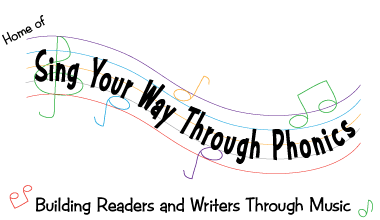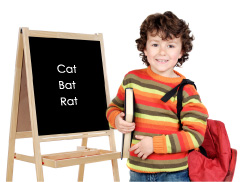Action Factor, Inc. presents the workshop for teachers and parents…

Learning Centers That Run Themselves
Presenter: Dr. Myrna R. Gifford
Workshop overview: To reach all students, we know that we must provide learning options that address individual learning styles, motivation, and interests. Self-running activity centers fulfill this need by giving students a chance to learn through auditory, visual, and tactile/kinesthetic modalities. Projects and activities at centers allow students to work individually, in pairs, or in small groups. Well-designed centers can encourage students to participate in creative activities that break away from the paper/pencil tasks so common to traditional assignments. As students learn to manage and self-monitor the quality of their work, they begin to take responsibility for their own learning, forming work habits that will serve them for the rest of their lives.
Objectives of the presentation: Participants will learn:
- the features of effective learning centers,
- how to design and manage self-running learning centers,
- how to develop developmentally appropriate center activities for all students.
Participants will receive a packet of ready-to-use activities and information that can be adapted to individual needs and curricula.
Format of the presentation: This is a make-and-take workshop where participants can create one or more learning centers to use in their classrooms or other settings. Multi-media centers can be designed to correlate with single-subject or multi-disciplinary topics.
Target age group: Pre-school through middle school
The target audience: Classroom teachers, special educators, administrators, pre-school teachers, tutors, parents, and others who wish to provide young learners with alternatives to traditional classroom instruction.
Brief summary of content: Activities that are multi-modality, multi-cultural, and/or multi-media are included in the most effective learning centers. To address all learning styles, tasks can be designed so that the concepts are presented and responded to in a variety of formats: art and graphics, manipulatives, music and sound, verbal exchanges, and technology. Students are empowered and motivated by choice which gives them a sense of ownership. Many choices can be incorporated into learning centers such as allowing students to choose from an array of information formats, allowing them to choose how and when they respond to new information, and allowing students to selecting with whom and where they will work. Through modeling and peer coaching, students learn how to organize their time at the centers and how to keep the centers running smoothly and efficiently. To help students use centers wisely, it is important to communicate:
- what concepts they will learn,
- what materials they will need,
- what steps they need to perform for learning,
- what they need to do when learning tasks are completed.
Learning centers that run themselves include self-checking answer keys or peer review checklists, as well as grids where students can track their own progress.
To request a customized workshop at your location, please use our online form.


